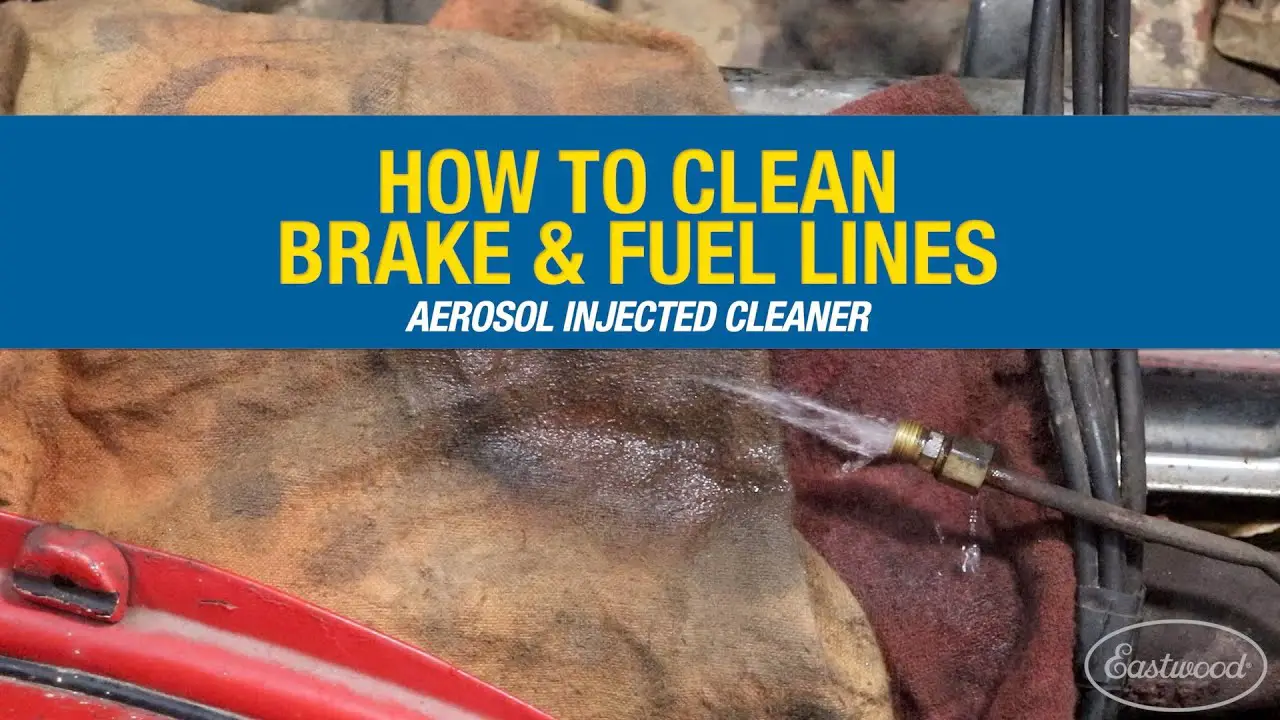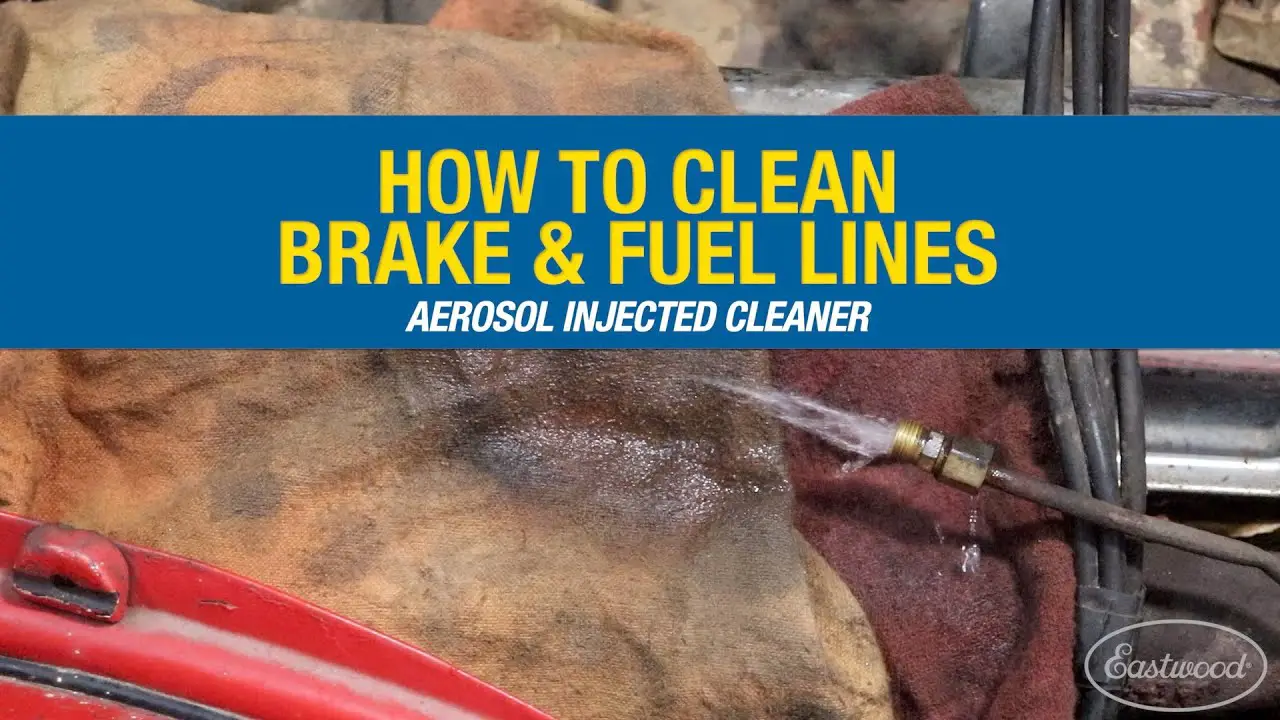Are you tired of dealing with a sluggish engine or poor fuel efficiency? The culprit could be gummed up fuel lines, which can impede the flow of fuel to your engine. But don’t worry, with a few simple steps, you can clean your fuel lines and restore your engine’s performance.
First, it’s important to understand how fuel lines become gummed up in the first place. Over time, dirt, debris, and sediment can accumulate in your fuel tank and make their way into the fuel lines, causing a buildup that can restrict fuel flow. But with the right tools and a little bit of know-how, you can quickly and easily get your fuel lines back in top shape. So let’s dive in and learn how to clean gummed up fuel lines like a pro!
If your fuel lines have become gummed up, it can cause your engine to run poorly or even prevent it from starting. Here’s how to clean gummed up fuel lines in a few easy steps:
- Disconnect the fuel lines from the engine.
- Flush the lines with a fuel system cleaner and let it sit for the recommended time.
- Rinse the lines thoroughly with clean fuel.
- Reconnect the fuel lines to the engine and start it up.
By following these simple steps, you can get your engine running smoothly again in no time.

How to Clean Gummed up Fuel Lines?
Fuel lines are an essential component of any vehicle’s fuel system. Over time, these lines can become gummed up with debris, causing a range of problems, including reduced fuel efficiency and even engine damage. Fortunately, cleaning gummed up fuel lines is a relatively simple process that can be done at home with the right tools and know-how. In this article, we’ll take a look at how to clean gummed up fuel lines and keep your car running smoothly.
What Causes Fuel Lines to Become Gummed Up?
There are several factors that can cause fuel lines to become gummed up, including:
1. Dirty Fuel: Fuel that contains dirt, debris, or water can cause buildup and clog fuel lines.
2. Inactive Vehicles: If a vehicle is not used for an extended period, the fuel inside the lines can evaporate, leaving behind a sticky residue.
3. Additives: Certain fuel additives can cause buildup in fuel lines and clog them over time.
4. Poor Fuel Quality: Using low-quality fuel can result in buildup in fuel lines.
How to Clean Gummed Up Fuel Lines
Cleaning gummed up fuel lines is a straightforward process that can be done with a few simple tools. Here’s how to do it:
1. Remove Fuel Lines: Start by disconnecting the fuel lines from the fuel pump and carburetor. Refer to your vehicle’s owner manual for specific instructions.
2. Inspect Fuel Lines: Inspect the fuel lines for any damage or cracks. If you notice any damage, replace the lines before continuing.
3. Use a Fuel System Cleaner: Add a fuel system cleaner to the fuel tank and let the engine run for 10-15 minutes. This will help to break down any buildup in the fuel lines.
4. Clean Fuel Filter: Remove the fuel filter and clean it thoroughly. Replace the filter if it’s damaged or dirty.
5. Reconnect Fuel Lines: Reconnect the fuel lines to the fuel pump and carburetor.
6. Test the Engine: Start the engine and let it run for a few minutes to ensure that the fuel lines are working correctly.
The Benefits of Cleaning Gummed Up Fuel Lines
There are several benefits to cleaning gummed up fuel lines, including:
1. Improved Fuel Efficiency: Clean fuel lines can improve fuel efficiency by allowing fuel to flow freely to the engine.
2. Increased Engine Performance: A clean fuel system can help to improve engine performance and reduce emissions.
3. Reduced Maintenance Costs: Regularly cleaning the fuel system can help to reduce maintenance costs over time by preventing damage to the engine and fuel system components.
Gummed Up Fuel Lines vs. Clogged Fuel Lines
While gummed up fuel lines and clogged fuel lines may sound similar, they are different issues. Gummed up fuel lines refer to a buildup of debris inside the fuel lines, while clogged fuel lines refer to a complete blockage of the lines. While cleaning gummed up fuel lines can be done at home, a complete blockage may require professional assistance.
Conclusion
Cleaning gummed up fuel lines is an essential part of maintaining your vehicle’s fuel system. By following these simple steps, you can keep your fuel lines free of debris and ensure that your engine is running smoothly. Regularly cleaning your fuel system can help to improve fuel efficiency, reduce emissions, and prevent costly repairs.
Frequently Asked Questions
In this section, you will find some frequently asked questions about how to clean gummed up fuel lines.
What causes fuel lines to become gummed up?
Fuel lines become gummed up due to the accumulation of dirt, debris, and varnish that build up over time. When fuel is left in the tank for an extended period, it can form a sticky residue, which eventually clogs the fuel lines. This can lead to engine problems and reduced performance.
Other factors that can contribute to fuel line blockages include the use of low-quality fuel, moisture accumulation in the fuel tank, and a dirty fuel filter.
What are the signs of gummed up fuel lines?
There are a few signs that indicate gummed up fuel lines. The most common signs include engine misfires, rough idling, and reduced engine power. If you notice that your car is difficult to start or that it stalls frequently, it may be due to gummed up fuel lines.
In some cases, you may also notice a strong odor of gasoline or black smoke coming from the exhaust. If you experience any of these symptoms, it’s important to have your fuel lines checked and cleaned as soon as possible.
Can I clean gummed up fuel lines myself?
Cleaning gummed up fuel lines is a delicate process that requires the use of specialized equipment and chemicals. While it’s possible to clean fuel lines yourself, it’s not recommended unless you have the necessary experience and knowledge.
If you’re not confident in your ability to clean fuel lines, it’s best to take your vehicle to a professional mechanic who can perform the service safely and effectively.
How often should I clean my fuel lines?
There’s no set schedule for cleaning fuel lines, as it depends on various factors such as the age of your vehicle, the quality of fuel you use, and your driving habits. However, as a general rule, it’s recommended to have your fuel lines cleaned every 30,000 to 40,000 miles.
If you notice any signs of gummed up fuel lines, such as reduced engine performance, it’s important to have them cleaned as soon as possible to prevent further damage to your engine.
What can I do to prevent gummed up fuel lines?
To prevent gummed up fuel lines, it’s important to use high-quality fuel and to avoid leaving fuel in the tank for extended periods. It’s also important to have your fuel filter replaced regularly, as a dirty fuel filter can contribute to fuel line blockages.
If you live in an area with high humidity, it’s a good idea to add a fuel stabilizer to your tank to prevent moisture accumulation. Additionally, regular maintenance and servicing of your vehicle can help prevent fuel line blockages and other engine problems.
How to Clean Old Brake & Fuel Lines with Aerosol Injected Cleaner – Eastwood
In conclusion, cleaning gummed up fuel lines is an essential maintenance task that is often overlooked. However, neglecting this task can lead to significant problems with your vehicle’s performance and fuel economy. By following the steps outlined in this guide, you can easily clean gummed up fuel lines and keep your vehicle running smoothly.
Firstly, it is crucial to identify the signs of gummed up fuel lines, such as engine misfires, reduced power, and poor fuel economy. Once you have identified these signs, you can begin the cleaning process by adding a fuel system cleaner to your gas tank. This will break down any buildup and debris in your fuel lines, allowing it to be burned off during normal engine operation.
Secondly, it is essential to perform regular maintenance on your vehicle to prevent gummed up fuel lines from occurring in the first place. This includes changing your fuel filter regularly and using high-quality fuel that is free from contaminants.
Lastly, if you are unsure about how to clean gummed up fuel lines, it is recommended to seek professional help. A certified mechanic can perform a fuel system cleaning service that will remove all buildup and debris from your fuel lines and ensure that your vehicle is running at peak performance.

